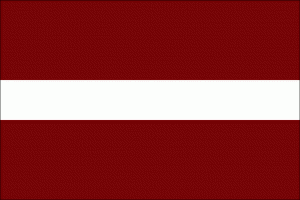 This page summarizes cases raised with Latvia by the Special Rapporteur between May 1, 2011, (when the Special Rapporteur took up his functions) and February 28, 2017 (the date of the last public release of communications). Communications are released to the public once per year. This page also contains observations on these communications and on responses received from Latvia.
This page summarizes cases raised with Latvia by the Special Rapporteur between May 1, 2011, (when the Special Rapporteur took up his functions) and February 28, 2017 (the date of the last public release of communications). Communications are released to the public once per year. This page also contains observations on these communications and on responses received from Latvia.
Communications and observations are divided into sections based upon which observation report they originally appeared.
Each communication is referenced as urgent appeal (UA), allegation letter (AL), joint urgent appeal (JUA) and joint allegation letter (JAL) – the hyperlinks lead to these documents. This is followed by the date the communication was issued, as well as the case number and the State reply (also hyperlinked if available).
Summaries and communications are published only in the language of submission (in the case of Latvia, English).
None
None
None
None
None
Observations
Response to communication
The Special Rapporteur wishes to thank the Government of Latvia for the detailed response provided to his communication sent on 15 April 2016, concerning considerations by the Latvian Parliament of the draft law “On Amendments to the Latvian Criminal Law”.
On 3 March 2016, the Parliament of Latvia approved the draft law “On Amendments to the Latvian Criminal Law” on their first reading. The draft amendments were reportedly prepared by three Latvian security services, but were tabled in Parliament by standing committees on Legal Affairs and on National Security. The amendments change the existing chapter of the Latvian Criminal Law on “Crimes against the State”. The amendments have been considered in accordance with the urgent legislative procedure, which reportedly circumvents the normal procedure for adopting laws before the Latvian Parliament. On 21 April 2016, the Parliament adopted the amendments in their final reading and they entered into force on 11 May 2016. The Special Rapporteur takes note of the Government’s reply that Parliament postponed the second reading of the draft amendments to 21 April 2016 in order to allow for a comprehensive discussion to address all concerns raised, as well as of the fact that the draft amendments were examined by the Standing Working Group on Criminal Law, which includes the representatives of the Ombudsman’s Office and the Office of the Representative of Latvia before International Human Rights Organizations. Nevertheless, the Special Rapporteur reiterates his concern that while the amendments seek to address the national security threats of hybrid and information warfare, the vague wording of the amendments may have broad implications for the exercise of the rights to freedom of opinion and expression and freedom of association.
For the full reports, containing communications, replies and observations for all countries, see the following links:
Report A/HRC/20/27/Add.3: May 1, 2011 to March 15, 2012
Report A/HRC/23/39/Add.2: March 16, 2012 to February 28, 2013
Report A/HRC/26/29/Add.1: March 1, 2013 to February 28, 2014
Report A/HRC/29/25/Add.3: March 1, 2014 to February 28, 2015
Report A/HRC/32/36/Add.3: March 1, 2015 to February 28, 2016
Report A/HRC/35/28/Add.4: March 1, 2016 to February 28, 2017